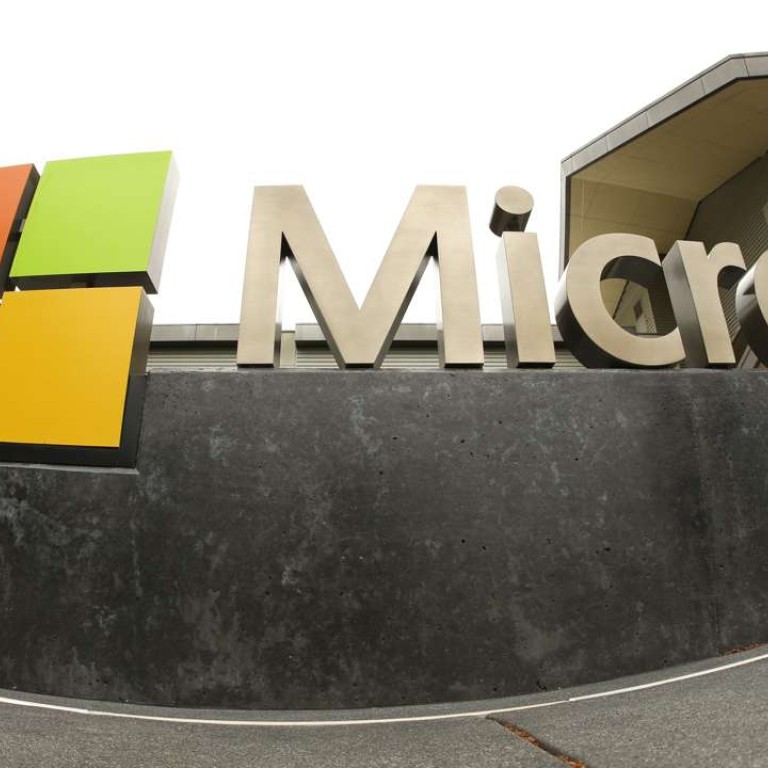
Microsoft lawsuit seeks right to inform customers when US feds are looking at their emails
Microsoft has sued the US government for the right to tell its customers when a federal agency is looking at their emails, the latest in a series of clashes over privacy between the technology industry and Washington.
The lawsuit, filed on Thursday in federal court in Seattle, argues that the government is violating the US Constitution by preventing Microsoft from notifying thousands of customers about government requests for their emails and other documents.
We stood with Apple, we expect other tech companies to stand with us
The government’s actions contravene the Fourth Amendment, which establishes the right for people and businesses to know if the government searches or seizes their property, the suit argues, and Microsoft’s First Amendment right to free speech.
The Department of Justice is reviewing the filing, spokeswoman Emily Pierce said.
Microsoft’s suit focuses on the storage of data on remote servers, rather than locally on people’s computers, which Microsoft says has provided a new opening for the government to access electronic data.
Using the Electronic Communications Privacy Act (ECPA), the government is increasingly directing investigations at the parties that store data in the so-called cloud, Microsoft says in the lawsuit. The 30-year-old law has long drawn scrutiny from technology companies and privacy advocates who say it was written before the rise of the commercial Internet and is therefore outdated.
“People do not give up their rights when they move their private information from physical storage to the cloud,” Microsoft says in the lawsuit. It adds that the government “has exploited the transition to cloud computing as a means of expanding its power to conduct secret investigations.”
The lawsuit represents the newest front in the battle between technology companies and the US government over how much private businesses should assist government surveillance.
By filing the suit, Microsoft is taking a more prominent role in that battle, dominated by Apple Inc in recent months due to the government’s efforts to get the company to write software to unlock an iPhone used by one of the shooters in a December massacre in San Bernardino, California.
Apple, backed by big technology companies including Microsoft, had complained that cooperating would turn businesses into arms of the state.
“Just as Apple was the company in the last case and we stood with Apple, we expect other tech companies to stand with us,” Microsoft’s Chief Legal Officer Brad Smith said in a phone interview after the suit was filed.
One security expert questioned Microsoft’s motivation and timing. Its lawsuit was “one hundred per cent motivated by business interests” and timed to capitalise on new interest in customer privacy issues spurred in part by Apple’s dispute, said D.J. Rosenthal, a former White House cyber security official in the Obama administration.
As Microsoft’s Windows and other legacy software products are losing some traction in an increasingly mobile and Internet-centric computing environment, the company’s cloud-based business is taking on more importance. Chief Executive Satya Nadella’s describes Microsoft’s efforts as “mobile first, cloud first.”
Its customers have been asking the company about government surveillance, Smith said, suggesting that the issue could hurt Microsoft’s ability to win or keep cloud customers.
In its complaint, Microsoft says over the past 18 months it has received 5,624 legal orders under the ECPA, of which 2,576 prevented Microsoft from disclosing that the government is seeking customer data through warrants, subpoenas and other requests. Most of the ECPA requests apply to individuals, not companies, and provide no fixed end date to the secrecy provision, Microsoft said.
Microsoft and other companies won the right two years ago to disclose the number of government demands for data they receive. This case goes farther, requesting that it be allowed to notify individual businesses and people that the government is seeking information about them.

